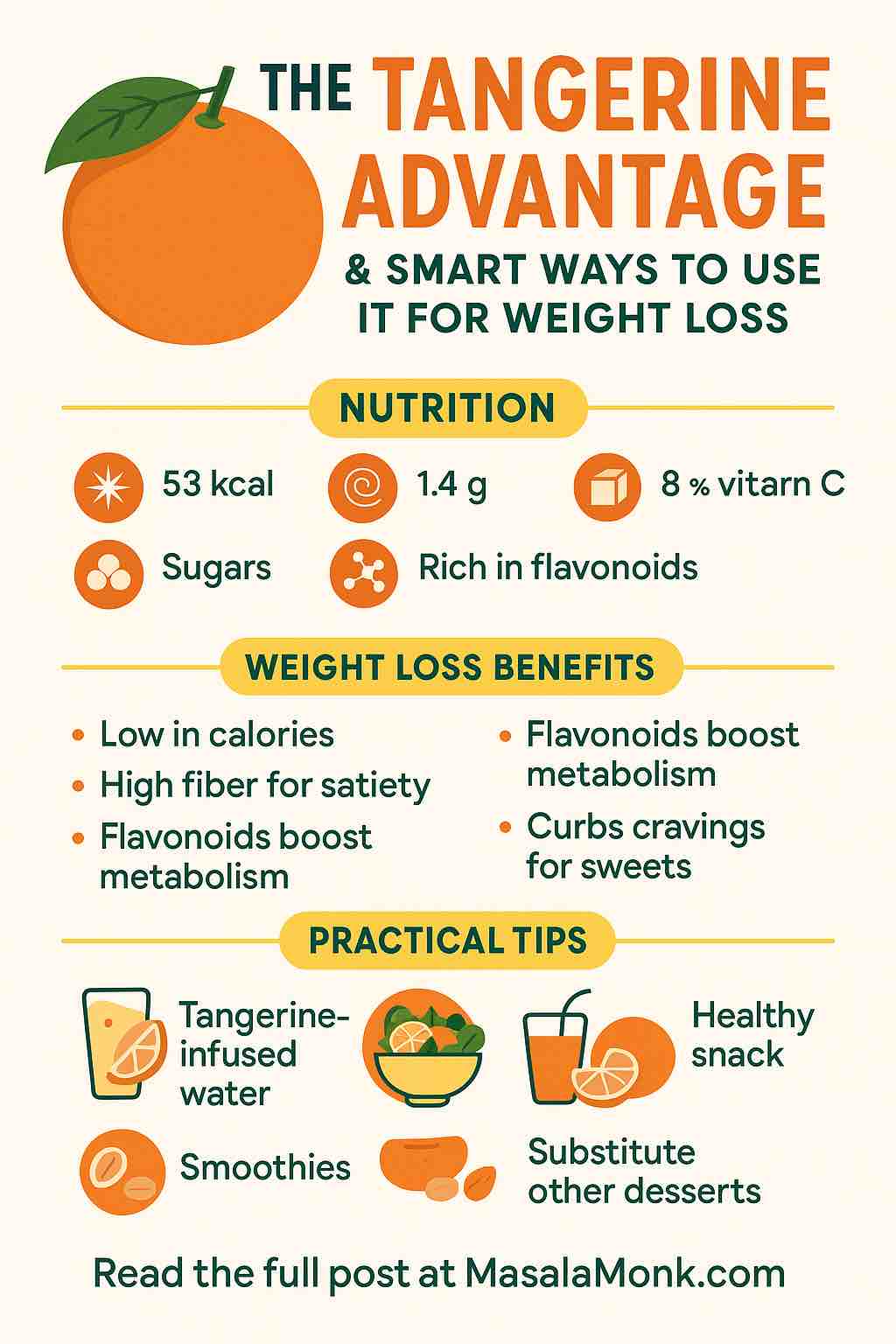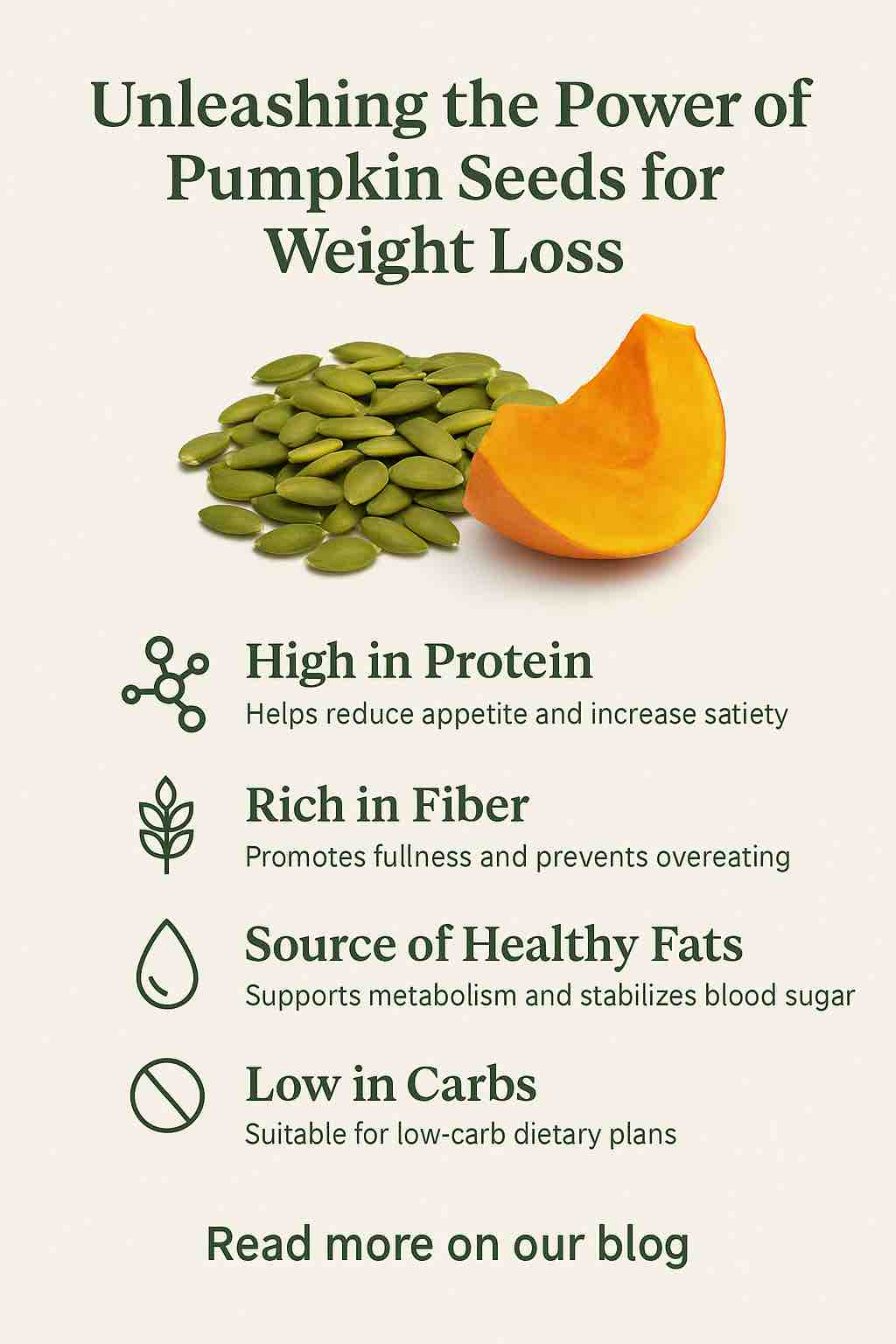
When you think of citrus fruits, oranges usually steal the spotlight. But nestled quietly among them is a vibrant, sweet, and deeply underrated hero — the tangerine. With its easy-to-peel skin, juicy segments, and refreshing tang, the tangerine isn’t just a convenient snack; it’s a nutritional powerhouse and a potential ally in your weight loss journey.
Let’s peel back the layers and explore how this humble fruit can enhance your health and help you shed extra pounds—deliciously.
🌱 Tangerine Nutrition: Small Fruit, Big Impact
Tangerines are a type of mandarin orange, and they pack quite the punch for their size. Here’s a quick snapshot of what you get per 100g serving:
- Calories: 53 kcal
- Carbohydrates: 13.3g
- Natural Sugars: 8g
- Fiber: 1.4g
- Protein: 0.8g
- Fat: 0.3g
- Vitamin C: 26.7 mg (34% DV)
- Vitamin A: 10% DV
- Water content: ~85%
These numbers may seem modest, but their real power lies in the synergy of nutrients and bioactive compounds—especially flavonoids like naringin, naringenin, and nobiletin.
✅ Health Benefits: More Than Just Citrus Sweetness
1. Antioxidant Richness That Protects
Tangerines are high in vitamin C and powerful flavonoids. These antioxidants neutralize free radicals, protecting your cells from oxidative damage. This can reduce your risk of chronic diseases like heart disease, cancer, and diabetes.
Did you know? Nobiletin, a flavonoid found in tangerines, has shown promising results in reducing fat accumulation in lab studies.
2. Boosts Digestive Health
Thanks to their fiber content, tangerines help keep your digestive system running smoothly. Regular fiber intake reduces constipation, supports a healthy gut microbiome, and may even enhance nutrient absorption.
3. Strengthens Heart Function
Potassium, flavonoids, and vitamin C make tangerines heart-friendly. They help regulate blood pressure, lower LDL cholesterol, and improve arterial health.
4. Improves Skin Health
Vitamin C is essential for collagen synthesis, which supports skin elasticity and combats aging. Add some glow to your skin with this citrus wonder!
5. May Have Anti-Cancer Properties
Emerging research suggests that compounds like limonene and nobiletin could have anti-cancer effects, particularly against breast, lung, and colon cancers.
⚖️ Weight Loss Benefits: How Tangerines Can Help You Get Lean
The tangerine’s potential as a weight loss aid lies not in being a “miracle food,” but in how it supports your body’s natural ability to burn fat and reduce cravings.
🔸 1. Low Calorie, High Satisfaction
At just ~50 calories per fruit, tangerines make an excellent snack that won’t blow your calorie budget.
🔸 2. Fiber for Satiety
The dietary fiber helps you feel full for longer, decreasing the likelihood of overeating or snacking impulsively.
🔸 3. Natural Sweetness, No Guilt
Tangerines satisfy sugar cravings with natural sugars—no added sweeteners or empty calories.
🔸 4. Metabolic Boost from Flavonoids
Animal studies suggest nobiletin enhances fat metabolism and improves insulin sensitivity—two critical components of weight loss.
🔸 5. Hydration Support
With 85% water content, tangerines help you stay hydrated—a factor often overlooked in fat loss strategies.
🥗 5 Practical Ways to Use Tangerines for Weight Loss
Now that we’ve covered the why, here’s the how. These simple, realistic ways to include tangerines in your daily routine can help you stay on track and enjoy the journey.
1. Tangerine-Infused Water
Skip the sugary drinks. Add fresh tangerine slices and a few mint leaves to a jug of cold water for a refreshing, flavorful drink that keeps you hydrated and curbs snack cravings.
2. Green Salad with a Citrus Twist
Toss tangerine segments with spinach, arugula, avocado, and walnuts. Add a drizzle of balsamic vinaigrette for a sweet-savory, fiber-rich lunch that feels indulgent but supports weight loss.
3. Morning Metabolism Smoothie
Blend one peeled tangerine with Greek yogurt, a scoop of protein powder, chia seeds, and ice. This smoothie is rich in protein, probiotics, fiber, and antioxidants—all perfect for a fat-burning start to your day.
4. Smart Snacking
Pair a tangerine with a handful of almonds or pumpkin seeds. The combo of fiber, healthy fats, and protein will keep you satisfied for hours.
5. Healthy Dessert Substitute
Craving dessert? Try this: chill tangerine segments, drizzle with dark chocolate, and sprinkle with a dash of sea salt. You’ll satisfy your sweet tooth without sabotaging your progress.
🎯 Final Thoughts: Is the Tangerine Your Secret Weight Loss Weapon?
Tangerines are more than just a sweet citrus snack—they’re a smart, strategic food choice that aligns perfectly with wellness goals. Whether you’re trying to drop a few pounds, improve your skin, or protect your heart, this fruit delivers far more than it promises at first glance.
So the next time you pass by a bag of tangerines in the store, toss a few into your basket. They may be small, but they carry the weight of big benefits—especially if you’re trying to lose a few yourself.
🧠 FAQs About Tangerines and Weight Loss
1. Are tangerines and mandarins the same fruit?
Answer: Not exactly. Tangerines are a type of mandarin orange, but not all mandarins are tangerines. Tangerines tend to be more reddish-orange in color and slightly more tart than other mandarins.
2. How many tangerines can I eat per day for weight loss?
Answer: 1–2 tangerines per day is a healthy range for most people. They provide nutrients and fiber while keeping sugar and calories in check.
3. Do tangerines have a high sugar content?
Answer: Tangerines contain natural sugars (about 8g per 100g), which is moderate. They are still lower in sugar than many processed snacks and come with fiber to slow sugar absorption.
4. Can I eat tangerines at night?
Answer: Yes, tangerines are a light, low-calorie fruit and can be a great alternative to late-night junk food. The fiber may help reduce late-night cravings.
5. Are tangerines good for diabetics?
Answer: In moderation, yes. Tangerines have a low glycemic index and contain fiber, which can help manage blood sugar levels. However, portion control is key.
6. Is tangerine juice as healthy as the whole fruit?
Answer: Whole tangerines are healthier because they retain fiber, which helps regulate blood sugar and digestion. Juice often lacks fiber and can spike blood sugar levels.
7. Can tangerines cause bloating or gas?
Answer: For most people, tangerines are easy to digest. However, those with citrus sensitivity or IBS may experience bloating. Start with small portions if you’re unsure.
8. How do tangerines help in reducing belly fat?
Answer: While no fruit targets fat in specific areas, tangerines are low in calories and high in metabolism-supporting flavonoids like nobiletin, which can aid in overall fat reduction.
9. Are tangerines better than oranges for weight loss?
Answer: Both are excellent choices, but tangerines are often smaller and lower in calories per fruit, making them a more portion-controlled option.
10. Can kids eat tangerines daily?
Answer: Absolutely. Tangerines are a healthy snack for children and provide essential vitamins and hydration. Just be sure to watch portion sizes for toddlers due to choking risk.










